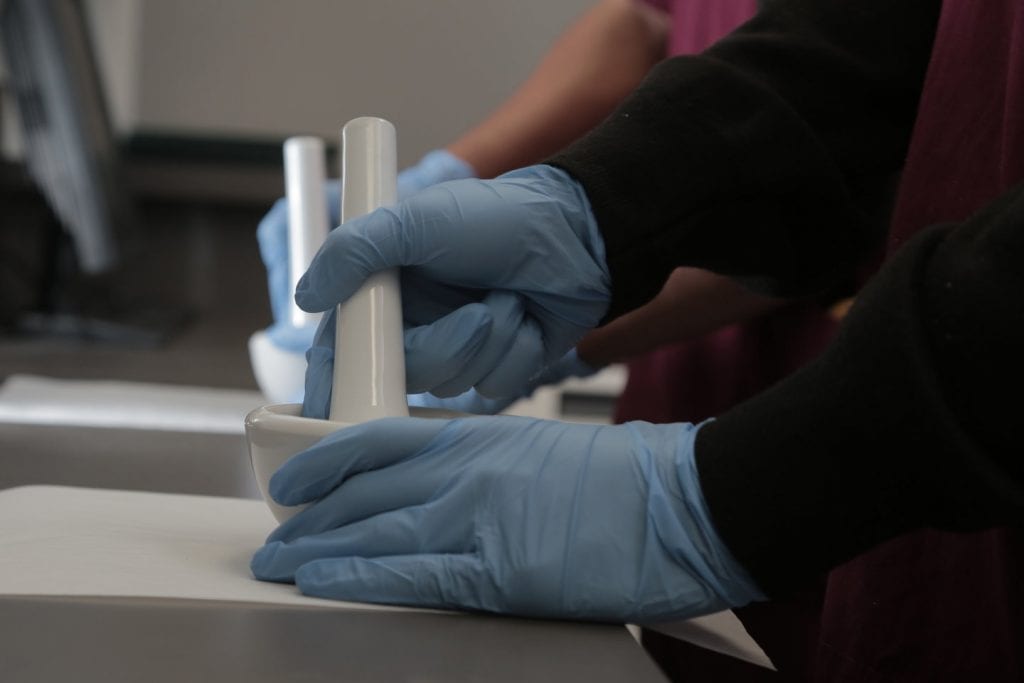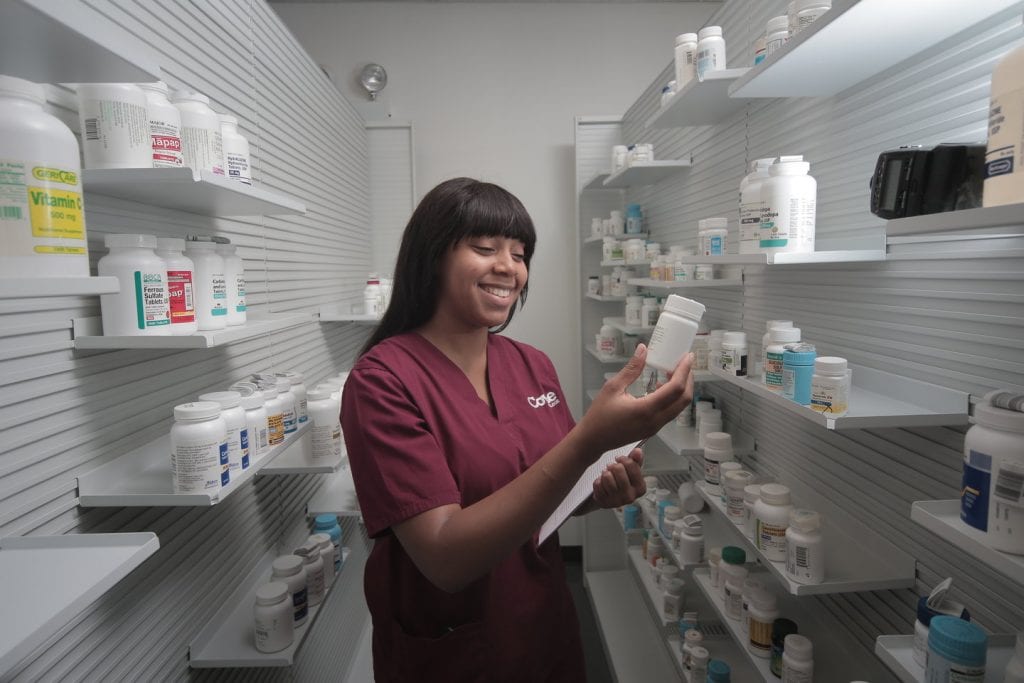As our population ages and baby boomers enter retirement in droves, the demand for healthcare professionals is increasing exponentially. That means there is a demand for pharmacy technicians to dispense their medications—especially in Chicago, a hub of medical care. Pharmacy technician jobs opportunities can be found in many workplaces—including some you may not have thought about.
Retail or chain pharmacies
Most pharmacy technician jobs—about 70 percent—are found in retail or chain pharmacies, such as CVS, Walgreen’s, Rite Aid and Walmart. These jobs offer flexible hours and workdays. The majority of a pharmacy tech’s day will be spent processing and dispensing prescriptions, but other tasks may include managing inventory or handling patient and order information.
Hospitals
About 17 percent of pharmacy technicians—usually certified technicians—work in hospitals. Although they spend the bulk of their time preparing prescriptions as they would in retail pharmacies, in hospitals they prepare single doses of medication. They may also fill syringes or prepare IV solutions for short- and long-term or ER patients.
Managed care facilities
Nursing homes and assisted living and mental health facilities all require pharmacy technicians to prepare and dispense medications for patients. Duties are similar to those in hospitals because medications are prepared as single doses. However, this can be a very routine job, as patients often need their meds two or three times a day.
Compounding pharmacies
A pharma career could lead to work in a compounding pharmacy, where certified technicians prepare compound (custom) prescriptions. Some of these smaller, independently owned pharmacies require their pharmacy technicians to have specific certification—and excellent math skills—to do their job. Because there are few of these pharmacies in a region, they usually pay very well.
Mail-order pharmacies
Pharmacy techs who work in high-volume mail-order pharmacies should be tech savvy because common meds (heart and cholesterol, blood thinners, painkillers) are dispensed by machines. The technician needs to learn the software to fill the machine, fix jam and reload label paper. He or she usually works on a computer to input prescriptions and process refills received via fax, phone or mail.
Nuclear pharmacies
Jobs for pharmacy technicians in nuclear pharmacies must be trained to handle and prepare radioactive medication. They need to perform mathematical calculations when compounding medications to ensure safety. They also label medications and manage inventory. Since this is such a specialized field, fewer than one percent of pharm tech jobs are in nuclear pharmacies.
Read our other Informative Posts here..
Pharmaceutical industry
The pharma industry is another good job category to add to a résumé. The companies that develop, produce and market drugs need pharmacy technicians to help with various tasks. These duties could include triage, coordinating drug information requests, assisting with literature searches, writing drug information documents or helping with other quality assurance-related matters.
Government agencies
Many government agencies, including the Federal Bureau of Prisons, the Veterans Administration, Indian Health Services and the Armed Forces need the help of pharmacy technicians. They might manage drug inventory and pharmaceutical supplies, replenish medications in dispensing systems, or compound and dispense medications.
How to become
According to O*NET OnLine, the projected job growth for pharmacy technicians between 2018-2028 is faster than average for other jobs (7-10 percent). Coyne College Chicago offers pharmacy technician training. Enroll in the 42-week Coyne College pharmacy tech program to prepare for a rewarding career. You’ll learn how to enter and order meds, keep records, mix IV solutions and compound products, and fulfill prescription orders. In addition to traditional classroom instruction by industry-professional faculty members, you’ll participate in a hands-on externship that will give you real-world experience.
Contact Coyne College to train for an in-demand career as a pharmacy technician.















